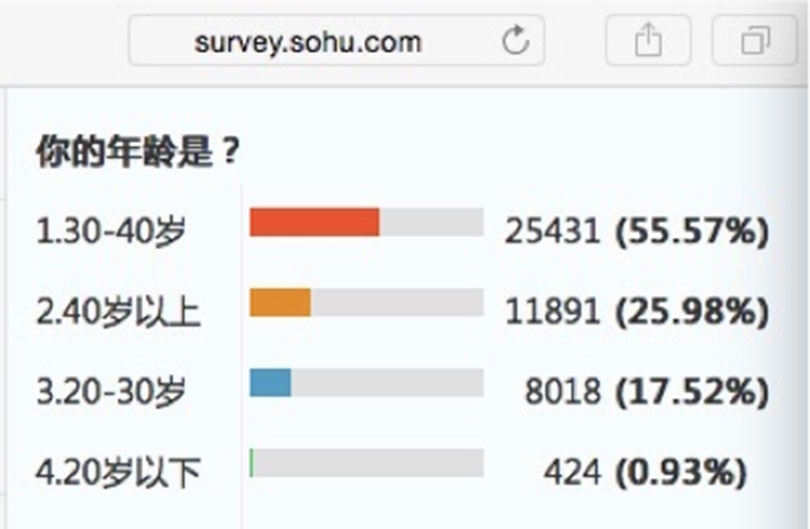At the end of last year, the Chinese government last month enacted a new strict prohibition of buying or selling sperms or eggs and a ban on any form of surrogacy.
According to the data by survey.sohu.com, since the Two-Child Policy began on 1st Jan, 2016, 25.7 percent of women over 40 years old would like to have a second child. The Chinese government is sensitive of such non-childbearing-age women as it can lead to a growing demand for illegal surrogacy. First steps were therefore taken in order to turn forbidden surrogacy regulations under the Ministry of Health into a national law.
However, several subsequent government actions left it unclear whether the practice is legal or illegal. First, the National People’s Congress (NPC), China’s highest authority, voted on cancelling the new disputed law. Soon after the vote, the chief of the Population and Family Planning Commission, Zhang Chunsheng, announced that “cancelling” is not “approving” and expressed a negative attitude toward the NPC’s vote.
This slight but sharp change in the childbirth law field has caused heated debates not only inside the National People’s Congress but also among the social masses. Those debates can generally be divided into three types; support, opposition or conditional acceptance.
Jiang fan, an NPC standing committee member who participated in the vote, opposes the surrogacy. “The urgent problem now we have is illegal organisations which reap fabulous profits from sperm and egg deals,” Jiang said, “And increasing abuse of surrogacy will cause an ethical dilemma.” He also expressed confidence in legally assisted reproductive technologies such as frozen semen conservation and test-tube baby techniques, which bring no negative impact to traditional ethics.
However, Sun Wei, a doctor of the Second Affiliated Hospital to Shan Dong Medical University, agreed with surrogacy. He pointed out that mothers over 45 have much greater chances of having a stillbirth or a child with birth defects. “It’s not realistic to solve such age problems by assisted reproductive technologies,” he added. “They probably have the fertility, but are not suitable for giving birth to a child,” expressed Sun as his worries.
In neither camp, Ze Lin, an expert in family planning law, said we should “conditionally accept surrogacy”. “What the Chinese government needs to do right now is not simply add or cancel the forbidden-surrogacy law, but to consummate the legal system by giving surrogacy a ‘protective guard’,” said Lin. He expressed that the government should approve surrogacy “when a complete law system against the illegal dealing of sperm and eggs has been established.”
Hard indeed it is, a woman surnamed Hui who hired a surrogate mother for her second child, agreed to be interviewed for Hello Nanjing. Hui is an English teacher in a Jiangsu Provincial high school. She hired a surrogate mother when she was 45 in 2013. She refused to reveal accurate details of surrogacy, but said the “mother” she picked was a migrant worker with an under-average income. When asked about how much she paid the hired mother, Hui said “Over ¥300,000 in total, including physical examinations, meals and home help when the hired mother was pregnant.” “The price is different from individuals and areas,” she added. Hui said she knew of the cancelling of the forbid-surrogacy law, “but it’s not a ‘yes’, right?” She is quite careful when talking about details; “whether it’s legal or not right now, it was not then. Even the second child was not legal then but I longed for having a son,” she said.
Jumping out of the debate, Tian Feng, a professor in the College of Social Science in Nanjing University, expressed his worries over public opinion, “We tend to judge a problem from [a perspective of] humanity. I always doubt that ‘inhuman’ is a fake problem. If we approve surrogacy, some will say it’s not humane for those ‘baby machines’, those poor women. When we put a ‘no’, some would say it’s inhuman for homosexual groups and aged groups,” he said. “But, it’s good to see the debate, I can see the coming progress, I mean how Chinese people explore what is justice and speak up for what they want. The mature policy is sure to follow.”
Feng also said, “I won’t say cancelling this forbidden law is social progress, it actually shows a latent,increasingly unstable status for the marriage system. It’s an inevitable historical phenomenon. Western countries have been through this ‘unstable’ historical stage earlier than us, so their policies are more open”.
Chinese netizens, however, may have the same wisdom as this academic. As can be seen from the most popular comment on Weibo about the fertility policy adjustment, user “QingcChuanlili” said, “Take it easy my gov! Social development is the best prophylactic!”









